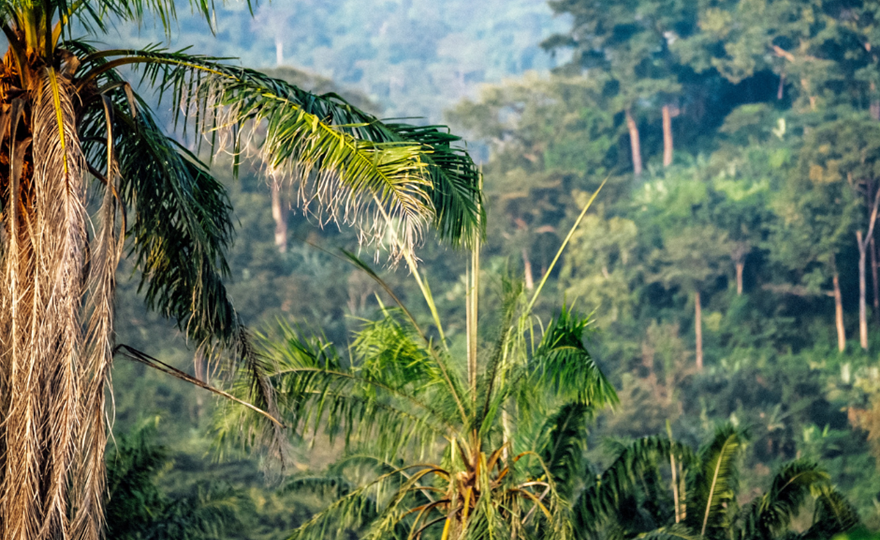ClientEarth Communications
23rd February 2024


On February 19, 2024, Côte d'Ivoire and the European Union signed a landmark agreement to protect and restore the West African nation’s forests and combat illegal logging.
The deal, known as the Voluntary Partnership Agreement (VPA) on Forest Law Enforcement, Governance, and Trade (FLEGT), has been a decade in the making. For almost 10 years, ClientEarth has been working with local partners to ensure the agreement not only safeguards the precious forests of Côte d'Ivoire, but restores those that have been destroyed by the timber trade and supports the needs of local communities. This agreement is not just a piece of paper; it represents a beacon of hope for one of the world's most endangered forest ecosystems.
The deal ensures that when timber is traded between Côte d'Ivoire and the European Union, it's done in a way that doesn't harm the forests. First, Cote d'Ivoire will finalise reforms to national forest laws to ensure that forest areas are subject to legal protections that prevent companies from harvesting them. Only businesses with a licence will then be able to export timber to the EU and the wood will have to pass a robust test to verify its legality. This is a crucial step in combatting the devastating effects of illegal logging while promoting sustainable management of the country’s forest resources.
Côte d'Ivoire has already lost a massive 94% of its forest cover, so it's crucial to protect what’s left and help the country restore these vital ecosystems. Local communities rely on the forests for their livelihoods, including food, medicine, and cultural practices. By safeguarding these forests, we are also protecting peoples’ rights and well-being.
What makes the timber trade agreement different is it wasn't just big businesses that had a seat at the table. Civil society groups and local communities were involved in the process too. This means the agreement isn't just about profits – it also considers the needs of the people who live in and around these forests.
Working with local partners especially our in-country associate and Ivorian legal expert, Dr Raphael Kra, we’ve played a key role in ensuring charities and communities have the knowledge, access and legal tools they need to meaningfully contribute to the negotiations.
The agreement guarantees that civil society groups on the ground in Côte d'Ivoire and community leaders will keep having a say in how the deal works in practice. For example, when giving licences to timber companies, the monitoring of forest areas done by these groups will be taken into account. The EU has also promised to promote gender equality in forest management, help with reforestation projects, and support local groups in their fight to promote the sustainable use of Côte d'Ivoire’s vital natural resources.
Forests serve as the lungs of our planet, providing clean air and water to billions of people, and sanctuary to countless species. We cannot tackle the climate crisis and biodiversity loss if we don’t safeguard these precious ecosystems. So, we will keep working with our local partners to ensure that the promises of this deal are fulfilled on the ground – with benefits for Côte d'Ivoire’s forests and the communities who rely on them.
This success is down to collective effort of local civil society organisations and communities fighting for people and planet.